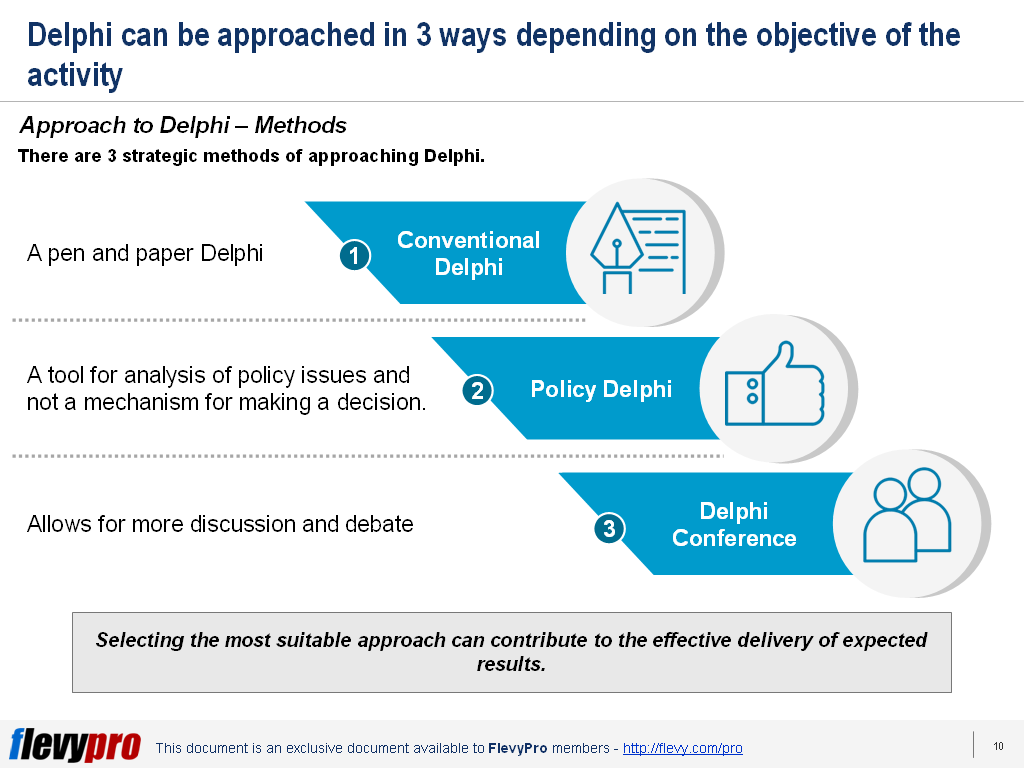
 Become a PowerPoint Guru by Dave Tracy
Become a PowerPoint Guru by Dave Tracy
Learn the methodologies, frameworks, and tricks used by Management Consultants to create executive presentations in the business world.

 Become a PowerPoint Guru by Dave Tracy
Become a PowerPoint Guru by Dave Tracy
In today’s business environment, management consulting firms must be ready to address client challenges and needs that will transform their  business by 10 or 100 times. Tools and methods must be scaled up to ensure applicability to the widest possible audience globally.
business by 10 or 100 times. Tools and methods must be scaled up to ensure applicability to the widest possible audience globally.
The Consulting Workshop Series provides a good understanding of the 10 Methods of conducting Workshops that are custom designed to fit specific workshop objectives. Different methods are developed for the purpose of providing organizations the most appropriate tool necessary to support organizations to achieve their strategic goals and targets.
If it is the management’s goal to facilitate collaborative dialogue and the sharing of knowledge and ideas to create a living network of conversation and action, then the World Cafe is the perfect method to undertake.
World Café is a creative process for facilitating collaborative dialogue and the sharing of knowledge and ideas to create a living network of conversation and action. Its primary objective is for ideation and to share ideas.
World Café is a simple, effective, and flexible format for hosting large group dialogue. By using World Café, organizations can plan meetings and gatherings where a unique environment is created with surprising and useful outcomes occurring.
In a nutshell, World Café is a process of helping people to remember what they already know how to do: to convene conversations that matter.
World Café can easily be organized as it just needs one person to put all preparations together: the Café Facilitator.
The application of World Café is so vast in terms of use. It is very useful when there is a need to engage large groups in an authentic dialogue process. When we need to generate input, share knowledge, stimulate innovation thinking, and explore action possibilities around real-life issues and questions, World Café is the most suitable amongst various methods in the Consulting Workshop Series.
World Café can even deepen relationships and mutual ownership of outcomes in an existing group. It can create meaningful interaction between a speaker and the audience. In fact, it can effectively engage people in authentic conversation whether they are meeting for the first time or have established relationships with each other.
Like any other approaches and methods, World Café is also most suitable for specific conditions and less in selected conditions. When you are already driving toward an already determined solution or answer, World Café may not be one for you.
Interested in gaining more understanding of the World Café workshop technique? You can learn more and download an editable PowerPoint about Consulting Workshop Series: World Cafe here on the Flevy documents marketplace.
Are you a management consultant?
You can download this and hundreds of other consulting frameworks and consulting training guides from the FlevyPro library.
In today’s business environment, management consulting firms must be ready to address client challenges and needs that will transform their  business by 10 or 100 times. Tools and methods must be scaled up to ensure applicability to the widest possible audience globally.
business by 10 or 100 times. Tools and methods must be scaled up to ensure applicability to the widest possible audience globally.
The Consulting Workshop Series provides a good understanding of the 10 Methods of conducting Workshops that are custom designed to fit specific workshop objectives. Different methods are developed for the purpose of providing organizations the most appropriate tool necessary to support organizations to achieve their strategic goals and targets.
If management is faced with a situation where the past or present is unlikely to be a guide for the future, Scenario Planning is the best method to use.
Scenarios are vision-building. It is an effective tool when the degree of uncertainty about the future is high.
What are Scenarios?
Scenarios are narrative descriptions of potential futures that focus our attention on relationships between events and decision points. Its primary objective is planning and preparing for an uncertain future.
Scenarios can be effective in improving long-term decision-making. It motivates change and generates alternative trajectories for future developments. You can use Scenarios to improve preparedness for emergencies and contingencies. Most importantly, Scenarios can be used to guide key choices and generate a vision that can facilitate action.
Building a well-informed Scenario takes 3 strategic stages.
At the end of the day, it is most important that Scenarios are converted into plans. Scenarios become plans after going through 4 strategic steps – Strategic Analysis, Scenario Creation, Strategy Finding, and Strategy Formulation. These steps shall be thoroughly discussed in the editable PowerPoint.
Interested in gaining more understanding of the Scenario Planning consulting workshop technique? You can learn more and download an editable PowerPoint about Consulting Workshop Series: Scenario Planning here on the Flevy documents marketplace.
Are you a management consultant?
You can download this and hundreds of other consulting frameworks and consulting training guides from the FlevyPro library.
In today’s business environment, management consulting firms must be ready to address client challenges and needs that will transform their  business by 10 or 100 times. Tools and methods must be scaled up to ensure applicability to the widest possible audience globally.
business by 10 or 100 times. Tools and methods must be scaled up to ensure applicability to the widest possible audience globally.
The Consulting Workshop Series provides a good understanding of the 10 Methods of conducting Workshops that are custom designed to fit specific workshop objectives. Different methods are developed for the purpose of providing organizations the most appropriate tool necessary to support organizations to achieve their strategic goals and targets.
If management is faced with a situation in which an urgent problem has to be resolved in a short period of time and when different options pose different benefits and risks, then the Planning Cell is the perfect method to undertake.
The primary strength of the Planning Cell Approach is it allows participants to better learn about and choose between multiple options regarding an urgent and important issue. Having too many options can be confusing. Hence, we need to have a tool that can make things easier but effective in studying these options.
The Planning Cell works best in a situation wherein an urgent problem has to be resolved in a short period of time. Yet, with that short period of time, there are just too many different options with each option posing different benefits and risks. This can be confusing.
Since the majority of the participants are selected by a random process, Planning Cell can be used to address even highly controversial issues.
The conduct of the Planning Cell must be done in a systematic manner following a 3-phase approach.
The Planning Cell as a participatory method has its advantages. First, due to the random selection of the participants, the acceptance of the results increases. Second, the results of the Planning Cell are completely open. Advisors can develop their own solutions and recommendations based on their experience in the Planning Cell process.
Most of all, the recommendations of the advisors can promote action in, and protect the interest of the general body. Planning Cell is a great opportunity to learn about the interest of others and make a more intelligent and informed decision out of multiple options.
Interested in gaining more understanding of the Planning Cell workshop technique? You can learn more and download an editable PowerPoint about the Consulting Workshop Series: Planning Cell here on the Flevy documents marketplace.
Are you a management consultant?
You can download this and hundreds of other consulting frameworks and consulting training guides from the FlevyPro library.
In today’s business environment, management consulting firms must be ready to address client challenges and needs that will transform their  business by 10 or 100 times. Tools and methods must be scaled up to ensure applicability to the widest possible audience globally.
business by 10 or 100 times. Tools and methods must be scaled up to ensure applicability to the widest possible audience globally.
The Consulting Workshop Series provides a good understanding of the 10 Methods of conducting Workshops that are custom designed to fit specific workshop objectives. Different methods are developed for the purpose of providing organizations the most appropriate tool necessary to support organizations to achieve their strategic goals and targets.
If it is the management’s goal to provide stakeholders an opportunity to stop and reflect on the past in order to make decisions about the future, then PAME is the perfect method to undertake.
The acronym PAME stands for Participatory Assessment, Monitoring, and Evaluation. It is a Consulting Workshop Method that is focused on evaluation and learning. It is an opportunity for the stakeholders of a project to stop and reflect on the past in order to make decisions about the future.
PAME as an approach can be used in various ways and in various points throughout the project. PAME is a helpful tool in avoiding pending or potential crisis and can help people determine the cause of a problem and ways to remedy it.
In the final analysis, it is most effective in shedding an understanding of why certain projects are not working well.
PAME is best conducted using a 4-phase approach.
In the final phase, the initial results are presented to a larger group. The larger group has an opportunity to contribute to further analysis. Implications of the results shall be discussed in terms of conclusions that can be drawn, the learnings that can be derived from the results, and most importantly, the different options available to address the emerging issues.
The insights can inspire groups to reconsider initial objectives. This forms part of the iterative learning process of PAME. When this process of discussion, evaluation, and analysis is done, the organization can expect to come up with a future action plan that is well crafted and thought about. With PAME, expect your future action plan to be most strategic and focused on addressing issues in the most effective and robust way.
Interested in gaining more understanding of the PAME workshop technique? You can learn more and download an editable PowerPoint about Consulting Workshop Series: PAME here on the Flevy documents marketplace.
Are you a management consultant?
You can download this and hundreds of other consulting frameworks and consulting training guides from the FlevyPro library.
In today’s business environment, management consulting firms must be ready to address client challenges and needs that will transform their  business by 10 or 100 times. Tools and methods must be scaled up to ensure applicability to the widest possible audience globally.
business by 10 or 100 times. Tools and methods must be scaled up to ensure applicability to the widest possible audience globally.
The Consulting Workshop Series provides a good understanding of the 10 Methods of conducting Workshops that are custom designed to fit specific workshop objectives. Different methods are developed for the purpose of providing organizations the most appropriate tool necessary to support organizations to achieve their strategic goals and targets.
If it is the management’s goal to allow participants to question each other and to elaborate upon their answers, then the Focus Group is the perfect method to undertake.
Focus Group is a Consulting Workshop Method that exposes different groups’ opinions on an issue and why these are held. It is a planned discussion among a small group of 4 to 12 stakeholders facilitated by a skilled moderator. It aims to expose different groups’ opinions on an issue and why they are held.
Conducting focus interviewing is effective in obtaining information about various people’s preferences ad values pertaining to a defined topic and why these are held by observing the structured discussion of an interactive group in a permissive, non-threatening environment.
Its application cuts across various agenda. It can gauge the nature and intensity of stakeholders’ concern and values about issues. It can obtain a snapshot of public opinion when time constraints or finances do not allow a full review or survey. Likewise, whenever there are proposals, it can be used to get detailed reaction and input from a stakeholder or client group. Additional information or modification may be gathered to develop the proposal further.
In an overall context, the Focus Group can be seen as a combination of a focused interview and a discussion group.
Undertaking a Focus Group must be done in a systematic approach. While the method may be relatively simple, it is an effective tool in generating opinions in a more natural, social context.
Is there a power differential existing within your organization? When the power differential between the participants and the decision-makers is great enough to discourage participation, the Focus Group is the best method to use.
It provides the security of a peer group. Furthermore, the method is particularly useful when one is interested in complex motivations and actions.
Interested in gaining more understanding of the Consulting Workshop Series: Focus Group? You can learn more and download an editable PowerPoint about Consulting Workshop Series: Focus Group here on the Flevy documents marketplace.
Are you a management consultant?
You can download this and hundreds of other consulting frameworks and consulting training guides from the FlevyPro library.
In today’s business environment, management consulting firms must be ready to address client challenges and needs that will transform their  business by 10 or 100 times. Tools and methods must be scaled up to ensure applicability to the widest possible audience globally.
business by 10 or 100 times. Tools and methods must be scaled up to ensure applicability to the widest possible audience globally.
The Consulting Workshop Series provides a good understanding of the 10 methods of conducting Consulting Workshops that are custom designed to fit specific workshop objectives. Different methods are developed for the purpose of providing organizations the most appropriate tool necessary to support organizations to achieve their strategic goals and targets.
If it is the management’s goal to have specialized input and opinion undergo evaluation, then the Expert Panel is the perfect method to undertake. An Expert Panel is a consulting workshop method that synthesizes a variety of inputs on a specialized topic and produces recommendations
An Expert Panel is an effective tool in clarifying complexities in organizational issues. The method uses a broad range of subject matter experts on various fields thus enhancing its effectiveness and depth.
Once, consultants have a good understanding of the Expert Panel, it can be used in various applications. An Expert Panel is effective in addressing appropriate issues that require highly technical knowledge and/or those that are highly complex. It is useful when a conflict exists that opinions are necessary to provide credibility and resolve these conflicts.
At times when there is a variety of opinions, an Expert Panel can provide a credible alternative opinion based on credible expertise. Most importantly, it is best used when there is a possibility of legal ramifications.
The Expert Panel is designed using a 3-phase approach.
The use of this method requires a careful selection of the members of your Expert Panel. Even prior to recruitment and selection, careful consideration should already be undertaken. One is the development of the Nomination Package. Next is having the right guidelines for proper selection. Most importantly, is understanding the 5 Key Elements of a Panel Profile.
The 5 key elements essential to the organization of your Expert Panel are Project Scope, Degree of Controversy, Technical Support, Uncertainties, and Disciplines. Each of these elements will guide consulting firms to have a well-composed and balanced profile of their Expert Panel.
As mentioned earlier, the Expert Panel is expected to investigate and study the topics assigned and set forth their conclusions and recommendations. Hence, diligence and thoughtful selection is needed to have an effective Expert Panel for the organization to achieve the results expected during the event.
Interested in gaining more understanding of the Consulting Workshop technique of the Expert Panel? You can learn more and download an editable PowerPoint about Consulting Workshop Series: Expert Panel here on the Flevy documents marketplace.
Are you a management consultant?
You can download this and hundreds of other consulting frameworks and consulting training guides from the FlevyPro library.
In today’s business environment, management consulting firms must be ready to address client challenges and needs that will transform their  business by 10 or 100 times. Tools and methods must be scaled up to ensure applicability to the widest possible audience globally.
business by 10 or 100 times. Tools and methods must be scaled up to ensure applicability to the widest possible audience globally.
The Consulting Workshop Series provides a good understanding of the 10 methods of conducting Workshops that are custom designed to fit specific workshop objectives. Different methods are developed for the purpose of providing organizations the most appropriate tool necessary to support organizations to achieve their strategic goals and targets.
If it is the management’s goal to solicit informed input for policy decisions, then the Citizens Jury is the most appropriate method to undertake.
The Citizens Jury is one of the methods in the Consulting Workshop Series that derives a decision that is representative of average citizens who has been well informed on the issue. It is most applicable when one or more alternatives to a problem need to be selected the various competing interests are arbitrated.
The Citizens Jury can lead to concrete action when this is directly linked to a decision making process.
Making the necessary preparation is the initial step towards organizing a Citizens Jury. While it may not be the main event, it is most critical as it contributes highly to the successful conduct of the event.
The preparation of the Citizens Jury is extensive. To ensure a systematic flow of the Citizens Jury, timelines are essential. Timelines begin after a contract or agreement has been signed and funded for the conduct of the Citizens Jury. Being able to select the appropriate timeline in structuring the Citizens Jury can contribute much to its successful conduct.
Interested in gaining more understanding of the Citizens Jury? You can learn more and download an editable PowerPoint about Consulting Workshop Series: Citizens Jury here on the Flevy documents marketplace.
Are you a management consultant?
You can download this and hundreds of other consulting frameworks and consulting training guides from the FlevyPro library.
In today’s business environment, management consulting firms must be ready to address client challenges and needs that will transform their  business by 10 or 100 times. Tools and methods must be scaled up to ensure applicability to the widest possible audience globally.
business by 10 or 100 times. Tools and methods must be scaled up to ensure applicability to the widest possible audience globally.
The Consulting Workshop Series provides a good understanding of the 10 methods of conducting Workshops that are custom designed to fit specific workshop objectives. Different methods are developed for the purpose of providing organizations the most appropriate tool necessary to support organizations to achieve their strategic goals and targets.
If it is the management’s goal to expose all opinions and options regarding a complex issue, then the Delphi Workshop Method is the perfect approach to undertake. By using Delphi, organizations can gain the benefits of pooling and exchanging opinions to learn from other’s views.
Delphi is a structured communication technique originally developed as a systematic interactive forecasting method that relies on a panel of experts. Its main objective is to expose all opinions and options regarding a complex issue.
Delphi is most effectively used in technology forecasting, as well as business forecasting such as sales of new products. It is used in the implementation of multi-stakeholder approaches for participating policy-making. It is also effective in patent participation identification and public policy issues such as economic trends, health, and education.
A dialectical process, it has been designed to provide the benefits of pooling and exchanging of opinions to learn from other’s views.
Delphi can be approached in 3 different angles. Depending on the objective of the activity, we can determine which is the most strategic way to approach Delphi.
In undertaking the Conventional Delphi, the Policy Delphi, and the Delphi Conference, organizations must be keen on following the right procedure in undertaking any of these Delphi. Because of its different approaches, the steps that are undertaken also varies. Taking the right step is necessary for better understanding and clarity of flow, as well as optimizing the use of Delphi in achieving the appropriate results at the end of the activity.
Interested in gaining more understanding of the Delphi consulting workshop method? You can learn more and download an editable PowerPoint about Consulting Workshop Series: Delphi here on the Flevy documents marketplace.
Are you a management consultant?
You can download this and hundreds of other consulting frameworks and consulting training guides from the FlevyPro library.
In today’s business environment, management consulting firms must be ready to address client challenges and needs that will transform their  business by 10 or 100 times. Tools and methods must be scaled up to ensure applicability to the widest possible audience globally.
business by 10 or 100 times. Tools and methods must be scaled up to ensure applicability to the widest possible audience globally.
The Consulting Workshop Series provides a good understanding of the 10 Methods of conducting Workshops that are custom designed to fit specific workshop objectives. Different methods are developed for the purpose of providing organizations the most appropriate tool necessary to support organizations to achieve their strategic goals and targets.
If it is the management’s goal to cultivate creativity and innovation with their organization, then the Charrette is the perfect method to undertake.
Charrette is one method of conducting consulting workshops that can generate consensus among diverse groups of people and form an action plan. Charrette provides time for a deep intellectual exploration of matters significant to the success of the firm. Charrette allows people to work not only at their own pace but also on projects that matter most to them.
This is one method that can effectively assemble practical ideas and viewpoints at the beginning of a planning process. It encourages input and collaboration from a wide range of participants. When the process is mature, it can facilitate decisions on difficult issues and resolve indecisions or deal with dead blocks between groups.
Charrette can effectively lead to developing feasible projects and action plans with specific practical steps. It can be applied to development, design, and planning projects and identify potential funding sources for projects.
Charrette must be done in phases with each phase directed towards attaining a specific objective.
Each phase is undertaken following a specific number of steps. These steps are necessary to achieve the specific objective of each phase and reach the ultimate goal of the entire workshop using Charrette as one of the methods in the Working Consulting Series.
The Pre-Charrette Phase focuses on developing and working with a Steering Committee. A Steering Committee is vital as it serves as the coordinator of Chafrette activities. The committee will be the one to establish a timeline and meeting schedule, as well as a preliminary list of issues the Charrette will focus on.
Once a Steering Committee has been organized, the organization is now ready to take on the 5 specific steps underlying the Pre-Charrette Phase.
Before undertaking these 5 specific steps, there are preliminary preparations that must be undertaken. First, there is a need to hold an organizational meeting with the Steering Committee and the Charrette facilitator to set the goals and arrange a basic schedule. It is essential that the Steering Committee must hold a regular meeting to ensure that all necessary preparations are being made.
A well-executed Charrette will set the pace towards a fun and productive opportunity for the organization to build and visualize its future.
Interested in gaining more understanding of Charrette? You can learn more and download an editable PowerPoint about Consulting Workshop Series: Charrette here on the Flevy documents marketplace.
Are you a management consultant?
You can download this and hundreds of other consulting frameworks and consulting training guides from the FlevyPro library.
In today’s business environment, management consulting firms must be ready to address client challenges and needs that will transform their  business by 10 or 100 times. Tools and methods must be scaled up to ensure applicability to the widest possible audience globally.
business by 10 or 100 times. Tools and methods must be scaled up to ensure applicability to the widest possible audience globally.
The Consulting Workshop Series provides a good understanding of the 10 Methods of conducting Workshops that are custom designed to fit specific workshop objectives. Different methods are developed for the purpose of providing organizations the most appropriate tool necessary to support organizations to achieve their strategic goals and targets.
If it is the management’s goal to generate consensus and options regarding a controversial topic or issue, then the Consensus Conference is the most appropriate method to undertake.
Consensus Conference is a 3-day intensive program that provides a vehicle for organizations to meaningfully influence policy decisions. Strategically, its application spans a broad range of uses. It can be used in the development of new regulations, generating new debate and understanding, consolidating politics, building bridges between interest groups and perspectives, and removing organizational silos.
Consensus Conference is also useful for combining many forms of knowledge and a method for obtaining informed opinions. Interestingly, the Consensus Conference provides a vehicle for organizations to meaningfully influence policy decisions, conflict assessment, clarification of attitudes, and assessing the relevance of an issue.
The Consensus Conference starts with Planning and the Recruitment & Selection of Panel. Thereafter, significant issues relevant to the topic of concern are discovered, drawn, and documented during the first 2 weekends prior to the Consensus Conference.
Conducting a Consensus Conference is intensive. Hence, it is necessary to gain mastery of the approach to allow organizations to effectively use Consensus Conference as a tool for assessing an identified critical topic.
Interested in gaining more understanding of the Consensus Conference? Learn more and download an editable PowerPoint about Consulting Workshop Series: Consensus Conference here on the Flevy documents marketplace.
Are you a management consultant?
You can download this and hundreds of other consulting frameworks and consulting training guides from the FlevyPro library.
Error: Twitter did not respond. Please wait a few minutes and refresh this page.